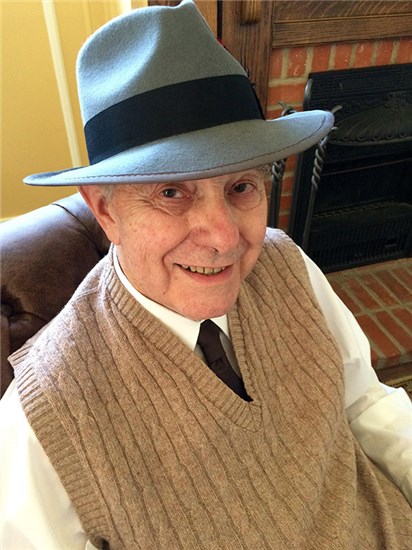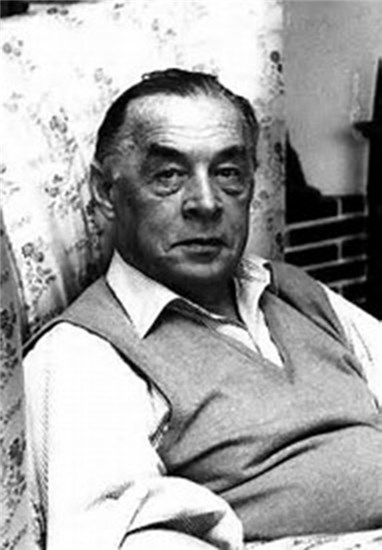

Erich Maria Remarque (1898-1970)
By George Frein
Essay
All Quiet on the Western Front is one of the greatest war novels of all time. But, when World War I ended on November 11, 1918 Erich Maria Remarque was is no condition to write the book. Nor would he be for ten years.
For ten years the war echoed in his memory. It haunted him. Awake and asleep, he saw again what he witnessed as a soldier in the German army: comrades killed by snipers and disfigured by shrapnel, trench warfare, chlorine gas attacks, artillery bombardments that tore apart towns, forests, cemeteries.
Finally, after 10 years, in order to exorcise his war demons, he sat down and wrote All Quiet -- in just five weeks. But war malaise never entirely left him. Echoes of the war can be heard in all 10 of his subsequent novels.
Remarque’s second book, The Road Back, was a sequel. The book describes the unexpected trouble soldiers had adjusting to civilian life. One veteran put it this way, “Perhaps I shall never be really happy again; perhaps the war has destroyed that, and no doubt I shall always be a little inattentive and nowhere quite at home.”
In a second sequel, Three Comrades, it takes three old soldiers, all together, to muster up the courage for one of them to love a woman. Moreover, there are already signs that the nationalism which led to the Great War was coming back in the form of Nazi thuggery.
The Great War created thousands of refugees who constantly crossed national borders in search of a place to hide and eke out a bare subsistence. Remarque’s next two novels, Flotsam and The Arch of Triumph, tell stories of what refugees found. They found the preamble to World War II.
The authoritarianism of the German state before and during World War I metastasized during the Nazi years and Remarque tells about it in Spark of Life. The tale is set in a concentration camp where number 509 leads his fellow prisoners in resistance and revolt with courage that saves their humanity in an inhuman place.
The book that most closely evokes the frontline experiences of All Quiet is A Time To Love and a Time To Die. It tells of a German soldier fighting on the Russian front in World War II. This time though the soldier finds love on a three-week furlough. He also finds that the Nazi regime is corrupt and all but defeated. He dies on the Eastern front where all is not quiet.
Returning to the theme of what it was like for a soldier back home after the war, Remarque wrote an absurdist novel, The Black Obelisk. Here a poet veteran seeks meaning by working for a company that makes grave markers, by talking to women at a bordello, and by visiting an insane asylum.
Even in his last books, written in the 1960s, Remarque’s topics echo with his World War I experiences: casualness in the face of death (Heaven Has No Favorites), comradeship in the face of brutality (The Night in Lisbon), and guilt in survival (Shadows in Paradise).
Recommended Reading
Remarque, Erich Maria. All Quiet on the Western Front. Ballantine Books, Random House, 1929/1982.
Remarque, Erich Maria. The Road Back [sequel to All Quiet]. Random House Trade Paperback, 1930/2013.
Remarque, Erich Maria. The Arch of Triumph. Random House Trade Paperback, 1945/2014.
Remarque, Erich Maria. The Night in Lisbon. Random house Trade Paperback, 1961/2014.
Tims, Hilton. Erich Maria Remarque: The Last Romantic. Carroll & Graf Publishers, 2003.
George Frein
George Frein, PhD was born 14 years after the end of World War I; but he has heard its echoes throughout his life during World War II, the Cold War, the Korean War, the Vietnam War, the first Gulf War, and the wars in Afghanistan and Iraq. However, during his academic life, in books by philosophers, theologians, and novelists, George has heard happier echoes from the “better angels of our nature,” to use Abraham Lincoln’s phrase. George has also been an echo himself, portraying some of these “better angels” -- Mark Twain, Herman Melville, Henry Adams, Dr. Seuss, Carl Jung, Friar De Smet. Now, in the role of Erich Maria Remarque, George will portray the novelist who has been called “the recording angel of the Great War.”
Erich Maria Remarque is often not recognized by name, but as soon as you say, “He wrote All Quiet on the Western Front” most people say, “Oh, sure, I read him in school.” More than 40 million copies of the book have been sold worldwide.
Perhaps the greatest anti-war novel of all time, All Quiet on the Western Front, is the story of World War I as it was experienced by German soldiers on the front, in the trenches. The true enemy for the soldiers was not French or British or American forces, it was war itself.
In the 10 novels that Remarque wrote after All Quiet on the Western Front there are many echoes of the World War I. There are echoes of its brutality, its nationalism, its anti-semitism, its political provincialism, its xenophobia, its military industrial capitalism.
Quotes
“We were eighteen and had begun to love life and the world; and we had to shoot it to pieces. The first bomb, the first explosion, burst in our hearts.” --All Quiet on the Western Front
“I wrote All Quiet on the Western Front to escape from something that was depressing me.” --Erich Maria Remarque
“I had never thought earlier of writing a book about the war. I suffered from rather violent attacks of despair. I could see similarities in many of my acquaintances and friends. The shadow of the war hung over us especially when we tried to shut our minds to it. On the same day these thoughts struck me I began to write without much in the way of prior thought.” --Erich Maria Remarque
“The details of my book are real experiences. . . . I was at the front long enough to have experienced personally just nearly all I have described.” --Erich Maria Remarque
“I am young, I am twenty years old, yet I know nothing of life but despair, death, fear, and fatuous superficiality cast over an abyss of sorrow.” --Erich Maria Remarque
"I had to leave Germany because my life was threatened. I was neither a Jew nor orientated towards the left politically. I was the same then as I am today: a militant pacifist." --Erich Maria Remarque
“I want to see America because I think this country is the salvation of the world.” --Erich Maria Remarque
“I am not German any more, for I do not think in German nor feel German nor talk German. Even when I dream it is about America, and when I swear, it is in American.” --Erich Maria Remarque
“I myself have lost a sister and many friends who were murdered by the Gestapo.” --Erich Maria Remarque
“The last of the romantics. Besides the great writer that he was, he had a capacity few men have. The capacity to understand the emotions of all living creatures.” --Marlene Dietrich
Timeline
1917 - Enters military service, is sent to the Western front, and is wounded
1918 - Is discharged from hospital and given the Iron Cross
1919 - Is discharged from the army and finishes teacher training
1920 - Teaches briefly, begins to work for magazines
1929 - All Quiet on the Western Front is published.
1930 - Film of All Quiet is released. Goebbels leads Nazi protest against it and the film is banned in Germany.
1931 - Remarque buys a house in Switzerland and publishes second book, The Road Back, a sequel to All Quiet.
1933 - On May 10, Nazis burn All Quiet in Berlin and Remarque flees to Switzerland.
1937 - Three Comrades is published and is followed by:
1941 - Flotsam
1946 - Arch of Triumph
1952 - Spark of Lif
1954 - A Time to Love and a Time to Die
1957 - The Black Obelisk
1961 - Heaven Has No Favourites
1964 - The Night in Lisbon
1972 - Shadows in Paradise